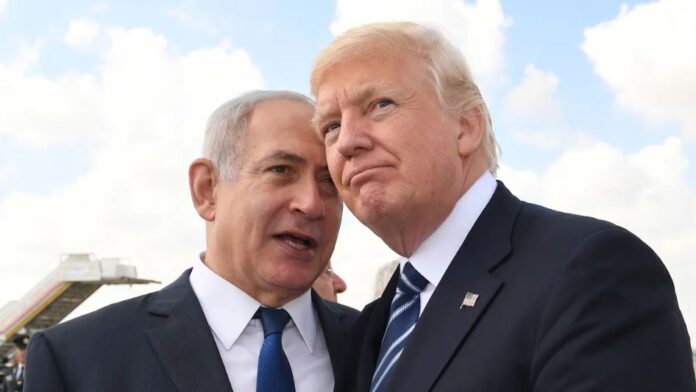A crucial deadline for initiating discussions on extending Gaza’s ceasefire passed on Monday with no clear signs of progress. Israeli Prime Minister Benjamin Netanyahu, currently in Washington for a high-profile meeting with U.S. President Donald Trump, has not yet announced a negotiating team to engage with Hamas, leaving the next phase of the fragile truce in limbo.
Details of the Current Ceasefire:
The ceasefire, effective since January 19, has a scheduled end on March 1.
Under the agreement, discussions for the subsequent phase were to commence no later than Monday.
Hamas has dispatched a delegation to Qatar and Egypt for the talks, but there’s been silence from Israel’s side on this matter.
Qatar’s Role and Statements:
Qatar’s Prime Minister Mohammed bin Abdulrahman Al-Thani, a key mediator, acknowledged the lack of concrete details on the initiation of these talks, expressing hope for movement in the coming days.
Netanyahu’s Strategy:
Netanyahu has shifted focus to Washington, where he is meeting Trump, the first foreign leader to formally meet the new U.S. president.
His office stated that negotiations on the second phase of the hostage deal would start during his discussions with Trump, focusing on Israel’s stance on the matter.
Progress and Exchanges:
Since the ceasefire began, 18 hostages have been released by Hamas in exchange for 583 Palestinian detainees from Israel, including some with life sentences and many children detained without charges.
The truce has facilitated the withdrawal of Israeli troops from population centers in Gaza, increased humanitarian aid influx, and reopened the Rafah crossing for medical evacuations.
Violations and Compliance:
Despite a few violations, this ceasefire marks only the second respite since the war started 15 months ago.
However, Netanyahu’s delay in starting talks for the second phase, which was supposed to begin on Monday, breaches the terms of the current deal. This phase would involve a full Israeli military withdrawal from Gaza and the release of all remaining hostages in exchange for more Palestinian prisoners.
Political Implications:
Netanyahu’s meeting with Trump is seen as pivotal, with Trump having played a significant role in previous talks even before his presidency.
Netanyahu’s comments suggest potential further changes to regional dynamics with Trump’s support.
Criticism and International Law Concerns:
Gershon Baskin, a noted peace activist, criticized Netanyahu’s delay, arguing it endangers hostages and violates the ceasefire agreement.
Trump’s suggestion for mass displacement of Gazans raises concerns about potential war crimes, as such actions could be seen as forced migration, which is against international humanitarian law.
Domestic Political Pressure:
Trump’s ideas align with hardline Israeli ministers like Bezalel Smotrich, who advocates for Jewish resettlement in Gaza post-evacuation of Palestinians.
The ceasefire has already caused political turmoil, with National Security Minister Itamar Ben-Gvir withdrawing his party from the government, labeling the ceasefire as a surrender.
As the deadline passes without clear action, the future of the ceasefire and peace negotiations hang in balance, with significant implications for both regional stability and international relations.



